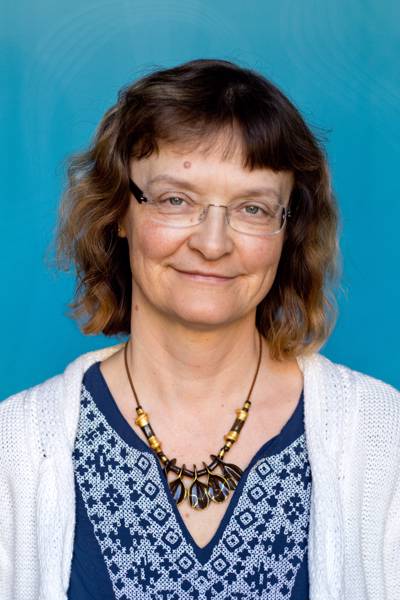An unpalatable Peace Prize
Posted Friday, 7 Nov 2025 by Wenche Iren Hauge

The task of awarding the Nobel Peace Prize carries with it a responsibility to contribute to dialogue and peace. In any event, the prize must not motivate or encourage aggression, contrary to the apparent effect of this year’s prize, awarded to Maria Corina Machado.
Machado’s dangerous attitudes
Machado, who is close to President Trump, has called for military intervention in Venezuela and for sanctions to be imposed on her country. She has supported the United States in its bombings of Venezuelan boats in the Caribbean, actions that experts in international law have described as extrajudicial executions. Machado has also supported Trump’s deportation of Venezuelan migrants from the United States to El Salvador’s notorious CECOT prison, where there is extensive use of torture. And last but not least: Machado is against dialogue.
A Peace Prize detrimental to dialogue
The awarding of the Peace Prize to Machado casts a dark cloud over the dialogue between the PUD (Venezuela’s alliance of main opposition parties) and the Maduro government; a dialogue that has been underway with Norwegian facilitation since 2019 (in Oslo, Barbados, and Mexico City). The final round of dialogue in Barbados in 2023 resulted in a joint declaration by the parties, as well as the signing of two agreements. The parties met again in 2024. It is likely that Machado’s Peace Prize will make continuing this dialogue extremely difficult. The situation is bleak. In many countries, where there is no general awareness that the Nobel Committee is independent, the Peace Prize is perceived as reflecting the views of the Norwegian government. This impression is being exacerbated now because the Norwegian government has not yet condemned the bombings of Venezuelan boats in the Caribbean. Three UN Special Rapporteurs – including the UN Special Rapporteur responsible for monitoring and reporting on extrajudicial, summary and arbitrary executions – have already condemned the United States for its breaches of international law. The Norwegian government should follow suit. Machado has supported the bombings, even after being awarded the Peace Prize. Condemnation of the bombings by the Norwegian government could at least mitigate the worst of the damage this Peace Prize has brought on the dialogue process.
A split opposition
There has been much dissension within the opposition in Venezuela, and Machado has also not been open to dialogue within the opposition. She turned a cold shoulder to the eight opposition candidates who failed to heed her call for a boycott of the 2024 presidential election. These candidates, and their parties, wanted political change in several areas, but did not support Machado’s call for military intervention and international sanctions on Venezuela. One of these opposition parties is the AD (Acción Democratica). Bernabé Gutiérrez, Secretary General of the AD and a member of the Venezuelan parliament, said recently that it was “unworthy to give the Nobel Peace Prize to a person who has called for violence, invasion and sanctions.”
A concerned Peace Prize laureate
Another person who is concerned about the award of the Peace Prize to Machado is Adolfo Pérez Esquivel, a former laureate from Argentina. He has gone so far as to write an open letter to Machado. Esquivel reminded Machado of the United States’ history in Latin America of lending support to far-right dictatorships responsible for massacres, assassinations, torture, and disappearances. He wrote: “Corina, I ask you: why did you call on the United States to invade Venezuela? When you received the announcement that you had been awarded the Nobel Peace Prize, you dedicated it to Trump – the aggressor … who lies and accuses Venezuela of being a drug trafficker … You resort to the worst possible option when you call for a US invasion of Venezuela.” (Translation: Orinoco Tribune).
Venezuelan migrants in the United States
The close links between Trump and Machado are also problematic in view of Trump’s treatment of Venezuelan migrants in the United States. Machado has defended the deportation of 252 migrants, alleged by Trump to be members of the criminal group Tren de Aragua. The migrants were deported to El Salvador’s notorious CECOT prison, a veritable concentration camp, where inmates are tortured and otherwise subjected to inhumane treatment, with no judicial process.
The Maduro government managed to negotiate the release of these prisoners from CECOT, in exchange for the release of 10 Americans imprisoned in Venezuela. On Venezuelan television, one could follow the return of the CECOT prisoners to Venezuela. Many of them bore clear signs of torture and mistreatment. BBC News World describes the prison as “the cemetery of living men”. The Venezuelan government claims that only two percent of the prisoners had any criminal record. Further, they did not seem like members of Tren de Aragua, but rather like members of ordinary Venezuelan families who were later reunited with their loved ones in Caracas. Several of those who were interviewed were almost unable to speak and broke down in tears of gratitude for being back in Venezuela.
Back in El Salvador, President Bukele receives sizeable payments from Trump and earns large sums of money from keeping Venezuelan prisoners there. Machado has not spoken out in support of these prisoners. But the Maduro government has done so. This is just one of the situations that shows the damaging nature of the close links between Machado and Trump.
- Wenche Iren Hauge is a Senior Researcher at PRIO










